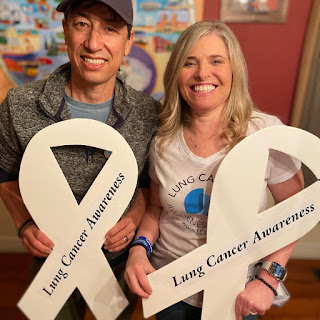Hope for Brain Cancer Patients: Global Adaptive Clinical Trials
I often write
about how “we are all in this together”.
Though I’m a lung cancer survivor, I am a passionate advocate for cancer
research for all different types of cancer. And as we are learning, precision
medicine is more about identifying the genetic abnormalities that cause
cancer, and less about where the cancer presents itself. And so it was an honor to attend the recent
press conference and reception announcing a broad coalition of Glioblastoma
Multiforme (GBM) neurosurgeons, neuro-oncologists, basic and clinical
investigators and representatives from GBM advocacy communities, including the
National Foundation for Cancer Research (NFCR), who gathered at the National Press
Club today to
announce “GBM AGILE,” a next-generation clinical trial for brain cancer.
This year
approximately 12,000 adults in the United States and tens of thousands more
around the globe will receive a diagnosis of GBM, the most aggressive and
deadliest form of brain tumor. These patients face a devastating reality: Less
than two percent will survive longer than five years after that diagnosis. GBM
took the lives of Sen. Ted Kennedy and more recently, Beau
Biden.
At the #GBMAGILE
reception, it was an honor to meet and visit with Vice President Joe Biden. The
Vice President was there to show his support and commitment to cancer
research. His family was there, and he
spoke eloquently about the compassionate care his son Beau received from NFCR
support cancer researcher Dr.
Al Yung, at MD Anderson. The sincere
affection for Dr. Yung was clear.
This type of
global initiative is exciting, and I’m proud NFCR is a part of it. The global
adaptive trial will be spearheaded by this newly formed coalition, #GBMAGILE,
which plans to enroll patients by mid-2016. The coalition is truly global, with
over 150 participants from more than 40 leading cancer institutions across four
continents.

